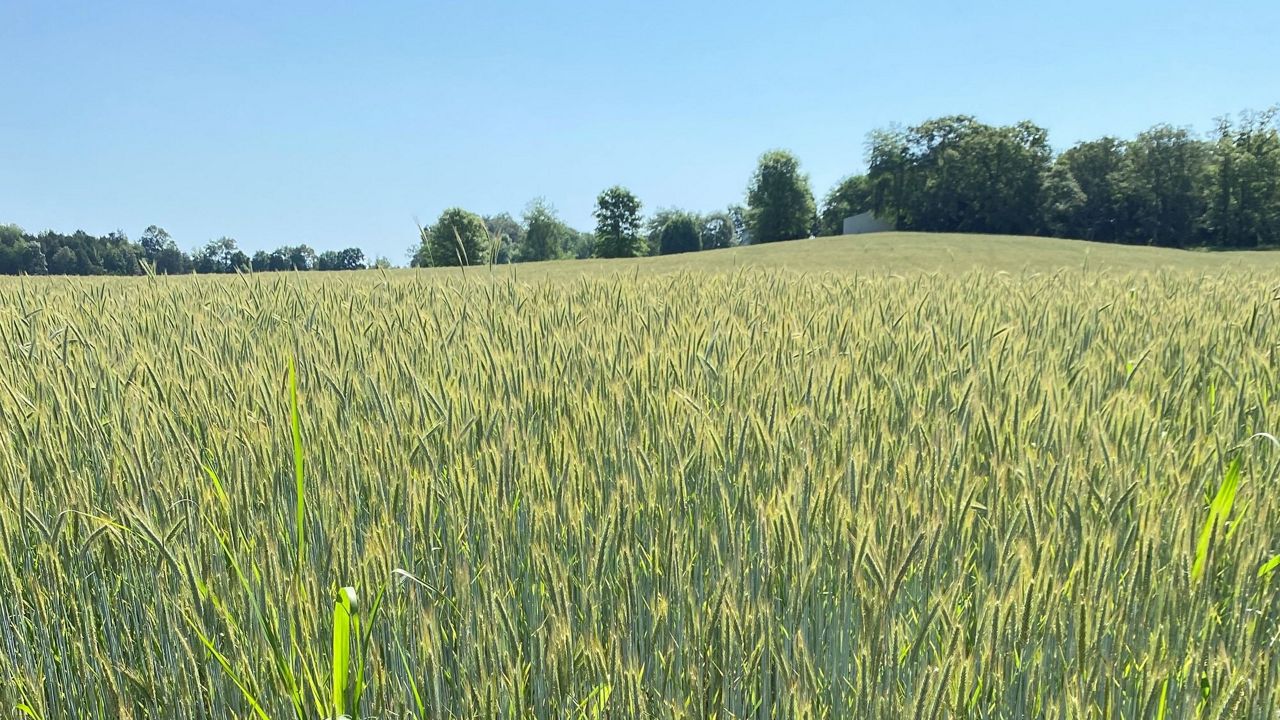LOUISVILLE, Ky. — Woodford Reserve on Wednesday announced an effort to bring production of rye grain back to Kentucky.
The bourbon maker committed to purchase the grain from local farmers for five years, all while working with the University of Kentucky to conduct research on the process.
What You Need To Know
- Woodford Reserve will purchase rye grain from local farmers for the next five years
- It's part of an effort to bring rye production back to Kentucky, where it's difficult to grow due to the regional climate
- Woodford Reserve will also work with the University of Kentucky to uncover an open-sourced rye variety that will grow well locally in Kentucky
- Regularly growing rye locally provides a third cash crop for farmers in a two-year corn and soybean rotation
Starting this summer, Woodford Reserve will run small trials on ten types of rye to determine their flavor nuances that impact bourbon in the distilling process. The effort, Master Distiller Elizabeth McCall said, is all about sustainability and supporting local farmers.
“If we can bring rye back to Kentucky, it would not only support farmers, but give a sustainable grain to whiskey producers across the state,” McCall said “Sustainability is a topic I care passionately about – and, working with partners, we can make a big impact.”
Woodford Reserve will purchase rye grown by four farmers in the trial for the next five years. Rye is rather difficult to grow in Kentucky because of its generally warm, humid climate.
Rye is primarily sourced by distillers from the cooler climates of Canada or Europe. To overcome those challenges, over $1 million will be invested collectively by partners in the development of an open-sourced Kentucky variety over the course of the program.
This project aims to uncover an open-sourced rye variety that will grow well locally in Kentucky.
“We need to find a rye variety that is well suited to our region of the country,” says Sam Halcomb, President of the KY Small Grain Grower’s Association and Managing Partner of Walnut Grove Farms. “Woodford Reserve has been very receptive to those ideas, and they’ve been very patient to work with us as a family farm and allow us to experiment with some things and support us in those experimentations.”
Growing rye locally provides a third cash crop for farmers in a two-year corn and soybean rotation. Plus, partnering with local farmers allows for a reduced carbon footprint at the Woodford Reserve Distillery.



